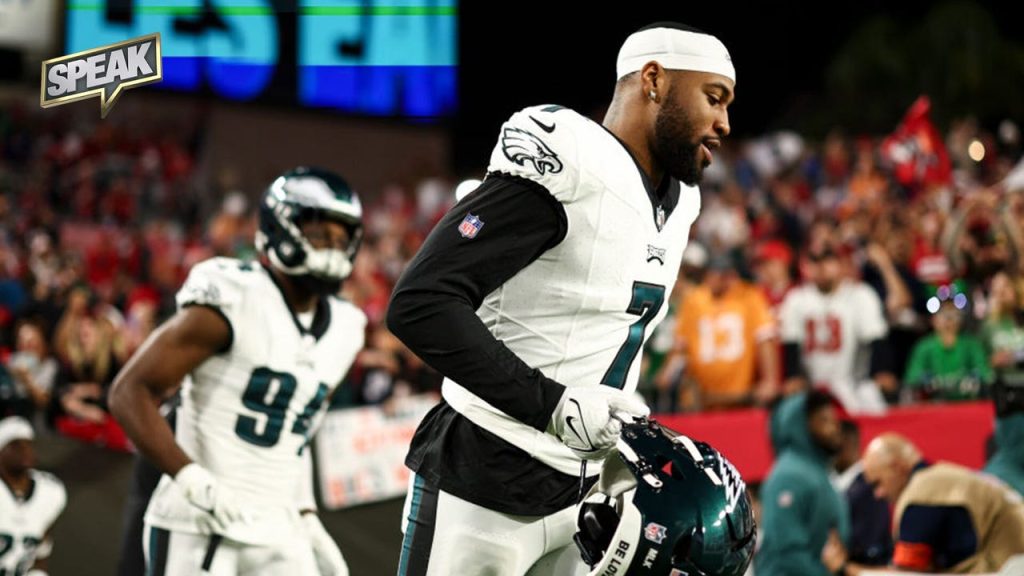LeSean McCoy, a former running back for the Philadelphia Eagles, recently reacted to the news of the team trading Haason Reddick to the New York Jets for a 2026 conditional third-round pick. McCoy shared his thoughts on the trade in an interview, expressing surprise and disappointment at the decision. He emphasized Reddick’s talent and contributions to the Eagles, noting that he was a valuable member of the team who had shown great potential. McCoy’s reaction highlights the impact that such trades can have on players and fans, as they adjust to changes in team dynamics and roster composition.
As a former player with firsthand experience of the NFL trade process, McCoy’s perspective offers insights into the implications of such transactions for those involved. He acknowledged the business aspect of the league and the reality that trades are a common occurrence in professional football. However, McCoy also noted the emotional side of these deals, emphasizing the personal connections that players build with each other and their teams. His reaction reflects the mix of professional detachment and personal investment that often characterizes players’ responses to trades and other roster moves.
The trade of Reddick to the Jets represents a strategic decision by the Eagles to acquire future draft assets in exchange for a talented player. This type of deal is common in the NFL, as teams seek to improve their roster and manage salary cap constraints. By trading Reddick for a conditional third-round pick in 2026, the Eagles are positioning themselves for long-term success by adding to their draft capital. This move fits into the team’s broader strategy of building for the future while also remaining competitive in the present.
McCoy’s reaction to the trade reflects the mix of emotions that players experience when teammates are traded away. He spoke of his admiration for Reddick and the impact that his departure would have on the team. McCoy’s comments underscore the camaraderie and bonds that develop within NFL locker rooms, where players form close relationships and support each other through the challenges of the season. The trade of Reddick serves as a reminder of the transient nature of professional football, where rosters can change in an instant and players must adapt to new circumstances.
In addition to his personal feelings about the trade, McCoy also offered insights into the broader implications for the Eagles as a team. He discussed the challenges of maintaining team chemistry in the face of roster changes and the importance of effective communication among players and coaches. McCoy emphasized the need for unity and resilience in the face of adversity, pointing to the role that leadership plays in guiding teams through transitions. His comments highlight the complexity of managing a successful NFL franchise, where personnel decisions can have far-reaching consequences on and off the field.
Overall, McCoy’s reaction to the trade of Reddick to the Jets provides a window into the inner workings of professional football and the impact that such transactions can have on players, fans, and teams. His perspective as a former player offers unique insights into the emotional and strategic dimensions of NFL trades, shedding light on the complexities of player personnel management in the league. McCoy’s comments serve as a reminder of the human element behind the business of football, where relationships and connections are as important as touchdowns and statistics. As the Eagles move forward with their roster adjustments, McCoy’s reflections offer a valuable perspective on the challenges and opportunities that lie ahead for the team.


